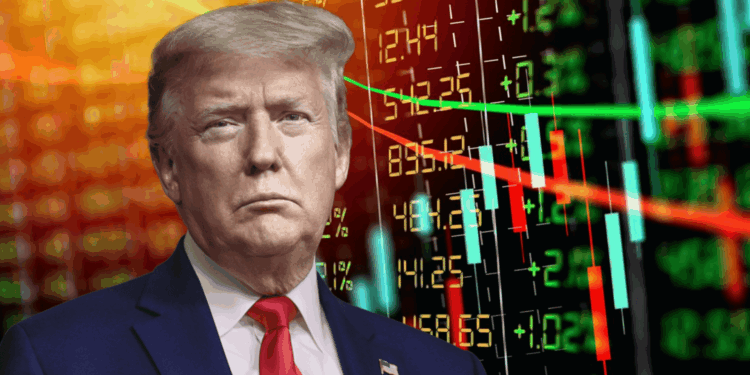- Trump warns that overturning his tariff policy could cause a Great Depression–level economic collapse.
- Legal challenges focus on whether the tariffs exceed emergency powers granted under the 1977 law.
- Markets have reacted sharply to tariff adjustments, with short-term rallies often fading amid policy uncertainty.
President Donald Trump issued a stark warning to U.S. courts on Friday, cautioning that overturning his tariff policy could trigger a severe economic downturn akin to the Great Depression of 1929. Posting on Truth Social, Trump said striking down the tariffs would “disturb the largest amount of money, wealth creation and influence the U.S.A. has ever seen” and argued it would be “impossible to ever recover.”
His comments come as a federal appeals court reviews the legality of tariffs enacted under the International Emergency Economic Powers Act of 1977. Former House Speaker Paul Ryan suggested that the Supreme Court might ultimately rule the duties invalid. Trump criticized the timing of any such ruling, claiming it would plunge the nation into “1929 style jeopardy” and derail historic economic gains.
Legal and Economic Implications
Challenges to Trump’s tariffs hinge on whether they exceed emergency powers granted by Congress. Alan Wolff of the Peterson Institute for International Economics warned that striking them down could create “a massive amount of red tape” in processing potential refunds to affected parties — a process he likened to a bell that “cannot easily be fully unrung.”
The banking and business communities remain split. Supporters argue tariffs have bolstered domestic industries, while critics warn of retaliatory trade measures and supply chain disruptions. Trump has framed the issue as both an economic and political fight, citing past accusations of judicial overreach against his administration.
Market Reactions and Volatility
Trump claimed the tariffs have delivered “huge positive impact” to the stock market, though recent history shows markets often react positively when he temporarily suspends or reduces them. For example, when Trump delayed “liberation day” tariffs in April for 90 days, the Nasdaq jumped 7% within minutes, and semiconductor-related stocks like AMD and Marvell rallied alongside Apple.
However, these boosts have tended to fade as Trump frequently shifts his stance on tariffs. While markets have recently shown more stability in the face of tariff news, investor sentiment still views trade policy as a volatile factor, particularly given the administration’s tendency to alternate between aggressive rhetoric and temporary reprieves.














